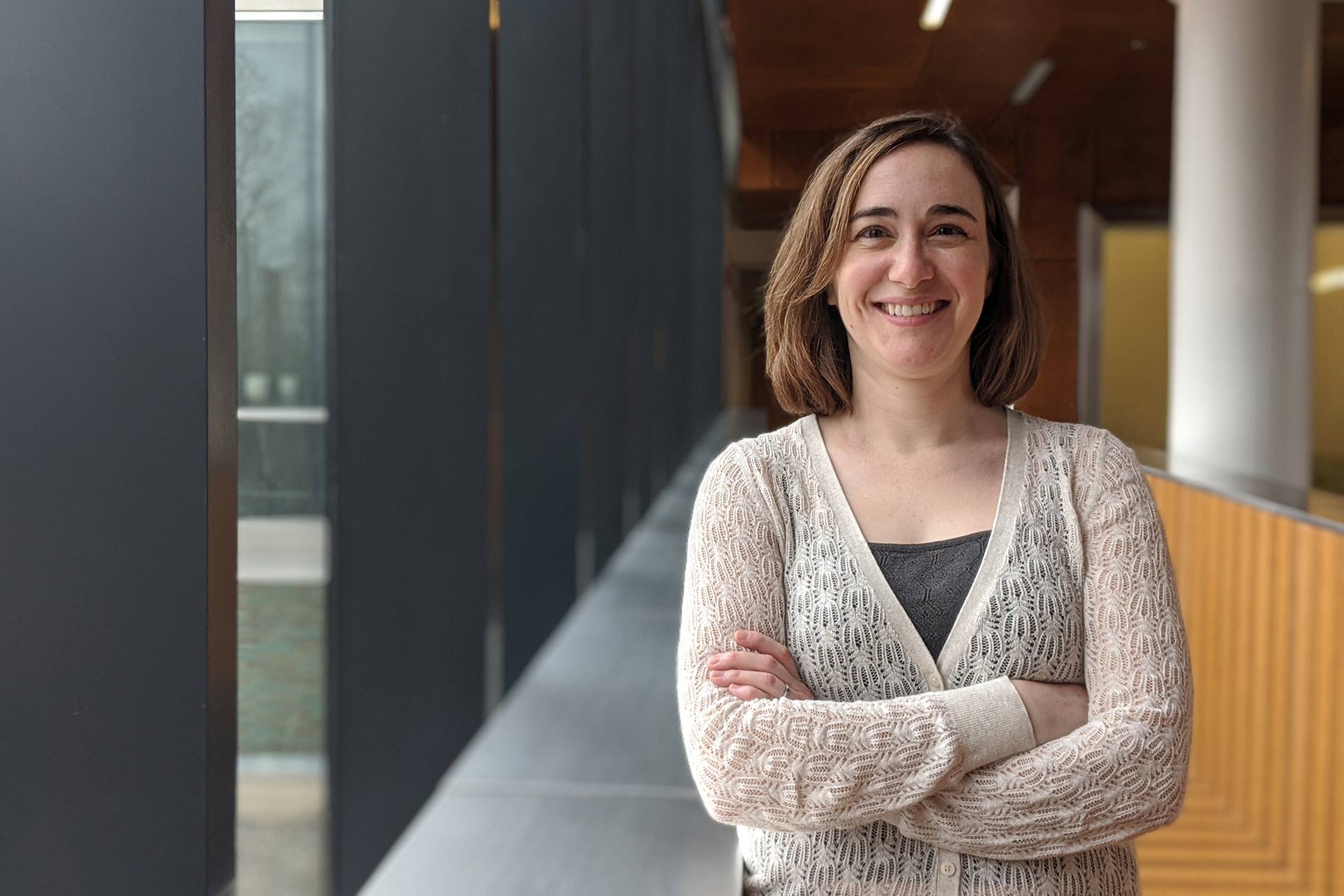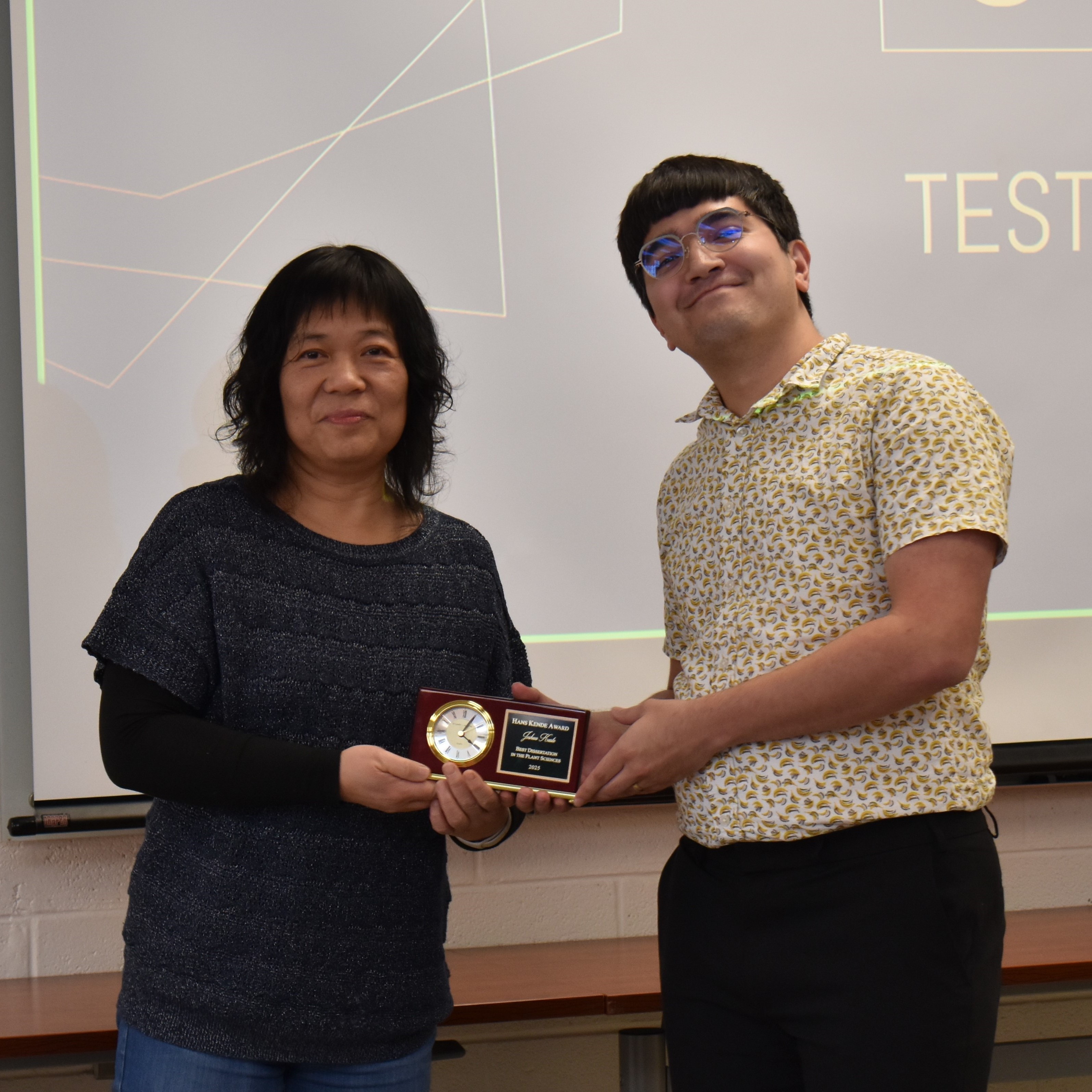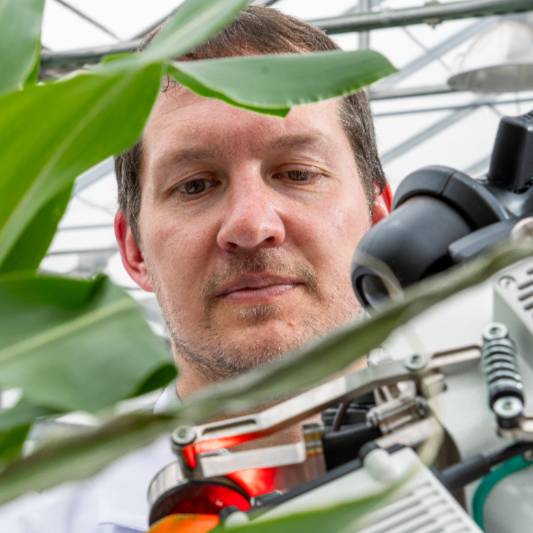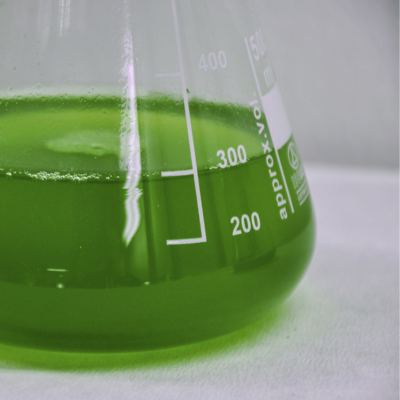Anne Rea starts Assistant Features Editor position at The Plant Cell
Anne Rea, a postdoctoral research associate in Jianping Hu’s lab at the MSU-DOE Plant Research Laboratory (PRL), has started a position as an Assistant Features Editor (AFE) with the journal The Plant Cell.
She will primarily write In Brief articles that highlight recently published papers in the journal. The In Briefs are targeted at scientists who browse the journal and want to read a summarized version of a study. They are also a way to draw them in to reading the full manuscripts.
Anne will continue her postdoc work while she works with The Plant Cell.
She shared her thoughts in an interview. Here are the highlights:
What attracted you to this position?
I’ve always liked writing, and I am particularly interested in science writing and editing. Some of my favorite parts about research are the thinking, designing and analyzing of experiments, and the writing that culminates in a cohesive story. June Nasrallah, my Ph.D. mentor, is one of the best writers that I know, and I aspire to be as proficient a writer as she!
I always thought to myself, “What if there were a job out there where someone could hire me to write their manuscripts?” It would seem to address an area that many people in science suffer through: the writing!
So how do you qualify for an AFE position?
Most are postdocs working in the plant biology field, with good writing skills and interest in communicating plant biology. These positions give us postdocs more writing experience, with an eye towards developing our future careers – whether having our own labs at a university, or becoming journal editors or science communications writers.
Whatever the goal, this position gives us the experience to write in the scientific field. It exposes us even further to the literature, and it also demands some creativity. We don’t just write summaries; we are encouraged to put an interesting spin on our stories, and we have to be able to capture the reader’s attention.

By MSU-DOE Plant Research Laboratory, 2020
How did you find out about this job opening?
Danve Castroverde, a former member of Sheng Yang He’s lab at the PRL, is a good friend. We share a love for words, language, and writing. He once told me that he had a position as an AFE and that I would enjoy doing it.
A few months later, he shared an announcement about the opening for this position. A couple of my PRL friends, Giovanni Stefano and Kyaw (Joe) Aung, told me that it would be a good fit for me. So I sent in my application, which included a mock In Brief article – and the rest was history!
Can you walk us through how you write an In Brief article?
We work with the Senior Features Editor, Nan Eckardt, who alerts us to upcoming papers. It is a first-come-first-serve situation. I really appreciate working with Nan – she is a great writer with an excellent work ethic, and she always wants to help!
Once the assignment is official, I get access to all of the manuscript documents. I usually read carefully through the manuscript, take notes, and look for connections to other things I have heard or read about. Sometimes, you can find an interesting angle that the authors might not have had the opportunity or space to include in their paper.
Then I write up a draft and send it to the editors and manuscript authors for comments and edits.
I also choose a figure that represents the story. It’s usually one from the paper. And, I even have to cite my own sources.
I heard that you even got to write one up for a former PRL member!
Yes! Joe Aung. He used to work in both Jianping Hu’s and Sheng Yang He’s labs at the PRL, and now he is an Assistant Professor at Iowa State University.
When Joe mentioned that he may publish his most recent paper in The Plant Cell, I told him, “Wouldn’t it be cool if you do, and I write up an In Brief article based on it?!” He was very excited about that possibility.
And then, months later, after he had moved on to Iowa State, he texted me one day to tell me that his manuscript got accepted into The Plant Cell.
I really wanted to write this one up, so I immediately contacted Nan, and mentioned that I knew Joe. She liked the idea, and it just happened, like that!
Has your postdoc mentor been supportive of your new position? One issue that might come up is that it might suck time away from your postdoc work.
Jianping Hu, my postdoc mentor, was so supportive of the AFE position. I really appreciated that. In general, she strikes a good balance between coming up with projects that I might enjoy and stretching me beyond my comfort zone.
When I joined her lab, the first thing she asked me was, “What do you want to do in your career, and how can I help?” When I shared my ideas about teaching and research, and writing and editing, she came up with some career ideas and grants to which I could apply.
I am very grateful to Jianping for her genuine mentoring and collegiality that she extends to me and her other current and former lab members. I am happy to be a part of her lab!
By Igor Houwat, Anne Rea



